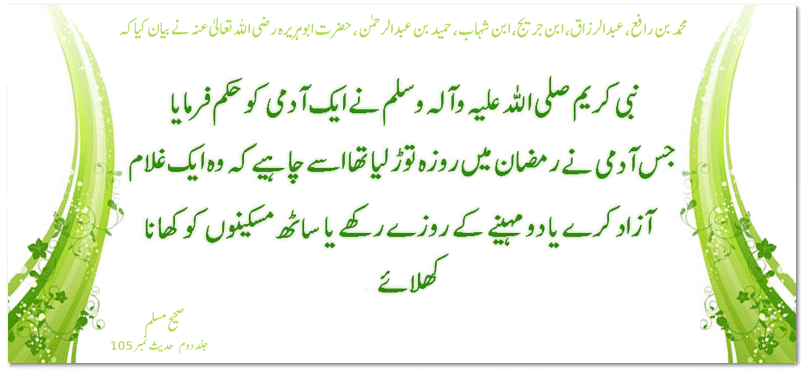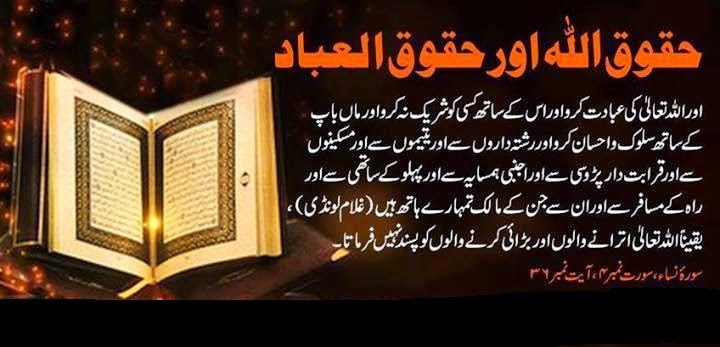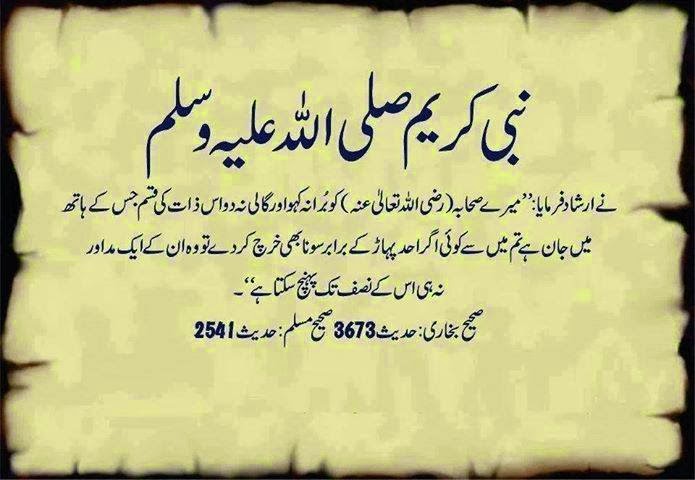The Five Pillars of Islam
A Muslim who fulfills the Five Pillars of Islam, remains in the faith of Islam, and sincerely repents of his sins will make it to Jannah (paradise). If he performs the Five Pillars but does not remain in the faith, he will not be saved. Pillars of Islam - Islamic Faith
1) Shahada: An Important Pillar Kalma - The First Pillar of Islam - Importance of Kalma
2) Salat: Namaz - The important Pillar of Islam
3) Zakat: Giving charity. Zakat - Law of Islam
4)Fast: Fasting - What is fasting in Islam?
5) Hajj: Pilgrimage. Hajj - Hajj Information
Zakat
Offering Zakat is one of five pillars of Islam. This is about charity given to the poor. It benefits the poor and helps the giver by moving him towards more holiness and submission to Allah.
Recipients of Zakat:
The recipients of Zakat, according to Quran are as follows:
"Alms are for the poor and the needy, and those employed to administer (the funds); for those whose hearts have been (recently) reconciled (to truth); for those in bondage and in debt; and for the wayfarer: (Thus is it) ordained by Allah, and Allah is full of Knowledge and Wisdom." (Quran 9:60)
FUQARA:
people who are poor and who possess more than their basic needs but do not possess wealth equal to Nisaab.
MASAKEEN:
people who are destitute and extremely needy to the extent they are forced to beg for their daily food rations.
AL-AMILEEN:
people appointed by an Islamic Government to collect Zakat.
MU-ALLAFATUL-QULUB:
persons who have recently accepted Islam and are in need of basic necessities who would benefit from encouragement by Muslims which would help strengthen their faith.
AR-RIQAAB: slaves who are permitted to work for remuneration and have an agreement from their masters to purchase their freedom on payment of fixed amounts.
AL-GHAARIMEEN:
persons who have a debt and do not possess any other wealth or goods with which they could repay that which they owe. It is conditional that this debt was not created for any un-Islamic purpose.
FI-SABILILLAH:
persons who have to carry out an obligatory deed which has become obligatory on them and subsequently (due to loss of wealth) are unable to complete that obligation.
IBN-US-SABEEL:
persons who are travelers and during the course of their journey do not possess basic necessities, though they are well to do at home. They could be given Zakat in order to fulfill travel needs to return home.
Types of Wealth on which Zakai is Imposed:
Gold and silver, in any form.
Cash, bank notes, stocks, etc.
Merchandise for business, equal to the value of Nisaab.
Live stock.
On income derived from rental business.
Calculation of Zakat
To calculate Zakat on jewelry etc. one must first determine the gold or silver content and then calculate the Zakat according to current market price.
If the Gold possessed is less than 87.48 grams or if silver possessed is less then 612.36 grams, but the value of both combined is equal to or exceeds the Nisaab of either Gold or Silver, the Zakat will be due.
In the event of an article not being of pure gold or pure silver, but containing a mixture of other metals and the gold or silver content is more than the other metal, it will be regarded as gold or silver and Zakat will be due. But in the case where other metal/s is of greater quantity than either gold or silver, Zakat will not be due on this article.
For stocks (shares held in a company), Zakat is calculated based upon the current market value. As machinery, land, fixtures and fittings, furniture, buildings etc. are exempt from Zakat, one is allowed to subtract these from the total asset. This could be obtained from annual reports. For example, if one has shares worth $1000 and machinery, land etc., are worth 5% of the total asset, then deduct $50 for these assets, afterwards deduct the liabilities of the company proportionately to the percentage of shares held. Zakat must be calculated on the balance.
Virtues and Blessings of Giving Zakat:
Allah says in the Quran:
"The parable of those who spend their wealth in the way of Allah is that of a grain of corn. It grows seven ears and each ear has hundred grains. Allah increases manifold to whom He pleases." (Quran 2:261)
It is stated in the Hadith that by giving Zakat the following benefits are derived:
Gain the pleasure of Allah.
Increase in wealth and protection from losses.
Allah's forgiveness and blessings.
Protection from the wrath of Allah and from a bad death.
A shelter on the Day of Judgment;
Security from seventy misfortunes.
The Punishment for not Giving Zakat:
Allah says in the Quran:
"And there are those who hoard gold and silver and do not spend it in the way of Allah, announce to them a most grievous penalty (when) on the Day of Judgment heat will be produced out of that wealth in the fire of Hell. Then with it they will be branded on their forehead and their flanks and backs. (It will be said to them) This is the treasure which you hoarded for yourselves, taste then the treasure that you have been hoarding." (Al-Quran 9:34-35)
1) Shahada: An Important Pillar Kalma - The First Pillar of Islam - Importance of Kalma
2) Salat: Namaz - The important Pillar of Islam
3) Zakat: Giving charity. Zakat - Law of Islam
4)Fast: Fasting - What is fasting in Islam?
5) Hajj: Pilgrimage. Hajj - Hajj Information
Zakat
Offering Zakat is one of five pillars of Islam. This is about charity given to the poor. It benefits the poor and helps the giver by moving him towards more holiness and submission to Allah.
Recipients of Zakat:
The recipients of Zakat, according to Quran are as follows:
"Alms are for the poor and the needy, and those employed to administer (the funds); for those whose hearts have been (recently) reconciled (to truth); for those in bondage and in debt; and for the wayfarer: (Thus is it) ordained by Allah, and Allah is full of Knowledge and Wisdom." (Quran 9:60)
FUQARA:
people who are poor and who possess more than their basic needs but do not possess wealth equal to Nisaab.
MASAKEEN:
people who are destitute and extremely needy to the extent they are forced to beg for their daily food rations.
AL-AMILEEN:
people appointed by an Islamic Government to collect Zakat.
MU-ALLAFATUL-QULUB:
persons who have recently accepted Islam and are in need of basic necessities who would benefit from encouragement by Muslims which would help strengthen their faith.
AR-RIQAAB: slaves who are permitted to work for remuneration and have an agreement from their masters to purchase their freedom on payment of fixed amounts.
AL-GHAARIMEEN:
persons who have a debt and do not possess any other wealth or goods with which they could repay that which they owe. It is conditional that this debt was not created for any un-Islamic purpose.
FI-SABILILLAH:
persons who have to carry out an obligatory deed which has become obligatory on them and subsequently (due to loss of wealth) are unable to complete that obligation.
IBN-US-SABEEL:
persons who are travelers and during the course of their journey do not possess basic necessities, though they are well to do at home. They could be given Zakat in order to fulfill travel needs to return home.
Types of Wealth on which Zakai is Imposed:
Gold and silver, in any form.
Cash, bank notes, stocks, etc.
Merchandise for business, equal to the value of Nisaab.
Live stock.
On income derived from rental business.
Calculation of Zakat
To calculate Zakat on jewelry etc. one must first determine the gold or silver content and then calculate the Zakat according to current market price.
If the Gold possessed is less than 87.48 grams or if silver possessed is less then 612.36 grams, but the value of both combined is equal to or exceeds the Nisaab of either Gold or Silver, the Zakat will be due.
In the event of an article not being of pure gold or pure silver, but containing a mixture of other metals and the gold or silver content is more than the other metal, it will be regarded as gold or silver and Zakat will be due. But in the case where other metal/s is of greater quantity than either gold or silver, Zakat will not be due on this article.
For stocks (shares held in a company), Zakat is calculated based upon the current market value. As machinery, land, fixtures and fittings, furniture, buildings etc. are exempt from Zakat, one is allowed to subtract these from the total asset. This could be obtained from annual reports. For example, if one has shares worth $1000 and machinery, land etc., are worth 5% of the total asset, then deduct $50 for these assets, afterwards deduct the liabilities of the company proportionately to the percentage of shares held. Zakat must be calculated on the balance.
Virtues and Blessings of Giving Zakat:
Allah says in the Quran:
"The parable of those who spend their wealth in the way of Allah is that of a grain of corn. It grows seven ears and each ear has hundred grains. Allah increases manifold to whom He pleases." (Quran 2:261)
It is stated in the Hadith that by giving Zakat the following benefits are derived:
Gain the pleasure of Allah.
Increase in wealth and protection from losses.
Allah's forgiveness and blessings.
Protection from the wrath of Allah and from a bad death.
A shelter on the Day of Judgment;
Security from seventy misfortunes.
The Punishment for not Giving Zakat:
Allah says in the Quran:
"And there are those who hoard gold and silver and do not spend it in the way of Allah, announce to them a most grievous penalty (when) on the Day of Judgment heat will be produced out of that wealth in the fire of Hell. Then with it they will be branded on their forehead and their flanks and backs. (It will be said to them) This is the treasure which you hoarded for yourselves, taste then the treasure that you have been hoarding." (Al-Quran 9:34-35)













































